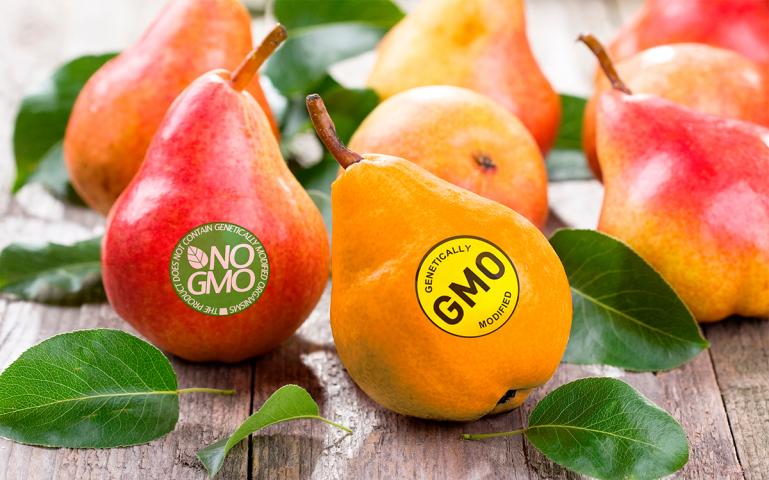GlobalSpa
19-Oct-2018
The controversy over whether or not Non-GMO labels on products are accurate has caused plenty of consumers to wonder whether or not they can trust them, or if the label is simply a marketing ploy.
Here are the facts.
Labeling of Products as Non-GMO or Otherwise is Voluntary
According to the U.S. Food and Drug Administration, manufacturers are not required to label their products as either genetically modified or Non-GMO.
An exception would be if a genetically modified ingredient contained an allergen as a result of being modified, which would necessitate the specific allergen being on the label.
No Federal Standard for Verifying Non-GMO Products
 So far, there has been no federal standard put in place which determines what specific qualities a product must have in order to be considered Non-GMO. Therefore, organizations or manufacturers can form their own standards.
The issue with this is that one cannot be sure that every product bearing a Non-GMO label is truly a non-genetically modified item, or to what extent it is.
However, the Non-GMO Project is an organization which is becoming increasingly popular among producers for their certification process. As such, many products which have met their qualifications now bear their seal.
In addition, there are federal standards concerning organic foods. To meet the requirements for organic certification, products must be Non-GMO. Thus, for consumers who wish to be certain that their foods are not genetically modified, organic foods can be a wonderful option.
Existing Private Standards Have Limitations
The Non-GMO Project, in accordance with the labeling requirements of the FDA, has made the statement that due to the limitations of the methods used for testing products to determine Non-GMO status, they cannot make claims that a product is GMO-Free.
The high risk of contamination of products is one of the factors which makes it impossible to ensure items are completely GMO-free.
While the Non-GMO Project cannot ensure that products with their seal are totally free of GMOs, they do certify products made with the best practices possible to avoid GMOs.
According to NPR.org, The Non-GMO Project does make sure that anything with their seal is made with ingredients with less than 1% genetic modification.
False Positives in Labeling
An article by the Alliance for Science at Cornell University says that some manufacturers or producers will label their products as Non-GMO certified, even in the case of crops that do not have GMO varieties.
Some examples include, but are not limited to, oranges, almonds, and peanuts. This could present the risk of insinuating to consumers that there are varieties which are genetically modified, when in fact, there are not.
Consumers may want to exercise caution in assuming that only Non-GMO labeled items are less likely to have genetically modified ingredients.
In conclusion, there are many factors to consider when determining whether a particular item is truly Non-GMO. Consumers would be wise to consider which standards have been followed in the certification of Non-GMO labeled products as well as which foods are naturally Non-GMO.
So far, there has been no federal standard put in place which determines what specific qualities a product must have in order to be considered Non-GMO. Therefore, organizations or manufacturers can form their own standards.
The issue with this is that one cannot be sure that every product bearing a Non-GMO label is truly a non-genetically modified item, or to what extent it is.
However, the Non-GMO Project is an organization which is becoming increasingly popular among producers for their certification process. As such, many products which have met their qualifications now bear their seal.
In addition, there are federal standards concerning organic foods. To meet the requirements for organic certification, products must be Non-GMO. Thus, for consumers who wish to be certain that their foods are not genetically modified, organic foods can be a wonderful option.
Existing Private Standards Have Limitations
The Non-GMO Project, in accordance with the labeling requirements of the FDA, has made the statement that due to the limitations of the methods used for testing products to determine Non-GMO status, they cannot make claims that a product is GMO-Free.
The high risk of contamination of products is one of the factors which makes it impossible to ensure items are completely GMO-free.
While the Non-GMO Project cannot ensure that products with their seal are totally free of GMOs, they do certify products made with the best practices possible to avoid GMOs.
According to NPR.org, The Non-GMO Project does make sure that anything with their seal is made with ingredients with less than 1% genetic modification.
False Positives in Labeling
An article by the Alliance for Science at Cornell University says that some manufacturers or producers will label their products as Non-GMO certified, even in the case of crops that do not have GMO varieties.
Some examples include, but are not limited to, oranges, almonds, and peanuts. This could present the risk of insinuating to consumers that there are varieties which are genetically modified, when in fact, there are not.
Consumers may want to exercise caution in assuming that only Non-GMO labeled items are less likely to have genetically modified ingredients.
In conclusion, there are many factors to consider when determining whether a particular item is truly Non-GMO. Consumers would be wise to consider which standards have been followed in the certification of Non-GMO labeled products as well as which foods are naturally Non-GMO.